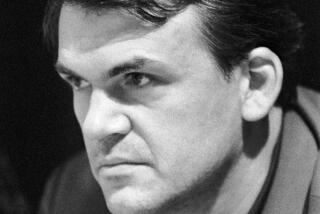The Cradle of Modernity
An enduring legend paints the 18th century as elegant, frivolous, witty and charming: No one who had not experienced it, declared Talleyrand, could imagine the sweetness of life around 1780. It must have looked particularly sweet in the sour aftermath of revolutionary experience. But Daniel Roche’s splendid book, “France in the Enlightenment,” sensitively translated by Arthur Goldhammer, dispels fantasies and puts legends in their place. It shows how false they are and yet how true, how sweet and promising life must have been for some and how miserable for many and, above all, how much more interesting reality is than are nostalgic myths.
Roche’s 18th century France is a cradle of modernity, the spring of aspirations and anxieties with which we live still and of disillusions generated by its dreams. The country he describes, which would take two weeks to cross by horse or coach, was vastly greater than the one we know and just beginning to be encompassed by surveys, maps, descriptions, by inventories, measurements and statistics. That’s what the Enlightenment was about: rational grasp of the world around, prior to its improvement; that and much more is what the author describes in chapters that are lively, lucid and lavish with information.
France’s Enlightenment occurred in the midst of a society that “saw itself as stable, changeless and coherent by virtue of ancestral principles and age-old values,” Roche writes. “A new world emerged gradually” that challenged traditional religious and political values with a faith that human reason could improve the physical and social environment. Major areas in need of such improvement were mobility and circulation: of folk, of goods, of wealth. Financed by taxes and compulsory labor that were denounced by critics as symbols of arbitrary rule, the construction of better and safer roads in the 18th century meant more travelers, more coaches, postmasters, inns, more lively fairs and markets, more money in circulation, people, goods, ideas, news, tax collectors. The limits of space receded, narrow horizons broadened as the traveling few roused the sedentary many, made them more curious and hence more mobile.
Not only was space tamed. Time, increasingly quantifiable, left the realm of liturgy for that of chronometers: Watches became accessible even to working men; clocks were recognized as instruments of discipline, order, management and control.
Clocks were most evident in cities; urbanization went with civilization; urbanity was good, rusticity despised. Aspiring rustics flocked to towns that shed defensive walls and turned bulwarks into boulevards. “There are so many people,” breathes a country lad discovering Paris at mid-century, “that nobody knows anyone else, not even in the same neighborhood, not even in his own house.” Yet this was also when non-nobles began to assert an individual personality: Witness the spate of portraits, correspondence and epistolary novels that mark the century.
A mobile society was developing with mobile identities, and no wonder. There was more exchange, social, cultural, material; more production, technological innovation, material progress. More comfort, privacy and refinement led to new varieties of furniture, fashions and even rooms in the home, like salons, studies and libraries, which acquired specialized functions.
Economic development civilized. Colonial imports, slave grown, of course, contributed sugar, tea, coffee and aphrodisiac chocolate. Eating edged toward gastronomy--lighter, more elegant, more fun and more expensive. More material goods don’t make for happiness, but they allowed unease to be endured in less discomfort. Private vices contributed to public prosperity. But not everybody welcomed changes that widened the gap between rich and poor, nature and artifice. Ever the spoilsport, Jean-Jacques Rousseau insisted that sciences and arts corrupt, civilization and luxury deprave, more material goods mean more vanity, inequality, alienation.
Wealth, as always, developed amid poverty; one is never so rich as among the poor, and of poor there were plenty. Ten percent of the population kept body and soul together only by begging, and those who were born poor died poor. Enlightened government would be about remedying pauperism, providing public assistance and police, but misery, vagrancy, homelessness, criminality remained more evident than reform. The poor continued as a threat and a source of fear. If fewer of them now starved, that only left more of them to riot.
The 17th century had been bleak and violent; the 18th century was just as turbulent. Fear of violence emphasized the difference between pliant people and rebellious rabble whose looks reflected primordial bestiality: ugly, dark, crude, filthy and ragged.
For Greeks as for Romans, plebeians had been idiotes. That’s what the people’s betters continued to think of them. People and populace behaved like children: credulous, foolish, excitable and no wonder, because they were ignorant and inarticulate. Religion had encouraged submission, discouraged transgression, reinforced discipline, but the hold of religion was fading, especially in urban settings. There were more books, more rental libraries, reading rooms, literary and debating societies, spreading ideas, criticism, irreverence, subversion. In this disenchanted context, the secularized human condition was no longer viewed as sinful but auspicious; mankind not base but creators of wealth and value. Change could mean progress and progress, now, meant the greatest good for the greatest number.
That called for education based on rational values. School would instruct and improve the poor, turn little savages into submissive subjects, make the vile productive, redefine labor not as demeaning but as socially valuable. “The rage to learn,” or at least to teach, observed an early feminist of the time, Olympe de Gouges, became “a national disease.”
Yet ignorance continued prodigiously; more than two-thirds of the French remained illiterate, but information trickled through the cluelessness, the literate minority sowed alternative notions among the unlettered; schooling reinforced tradition and control, but also spurred freedom of thought, social mobility and transformation. Rousseau grumbled that educating peasants ruined bucolic lives and simple, happy natures; officials feared that it discouraged productive labor, encouraged parasitism. But pedagogy henceforth looked like a key to human liberation.
New social scripts nudged the rejected toward integration, new stereotypes presented commoners no longer as grotesque but as vital and noble. Idealization replaced marginalization.
The intellectual landscape was also altered. Once on a par with domestic help, scientists and men of letters became relevant. Medicine, agronomy and engineering extended productivity and control. Debates about the nature of comets and the wisdom of inoculation vulgarized scientific achievements. The world could be plumbed by mathematics, understood in mechanical terms. God, the Great Clockmaker, justified interpretation of a universe as rational, self-regulating and understandable as society must be, or the human body. The idea of a body politic suggested medical metaphors that connected vital social and political pathologies.
Organic metaphors turned up everywhere: Roads were compared to arteries, uprisings to feverish crises. Medical, anatomical, hydraulic analogies reflected the shared vision, values and verbal strategies of the educated fold, most of whose learned books now dispensed with Latin and, through the vernacular, reached a broader audience. Tradition appeared ever more dispensable, science and progress more desirable.
Information was part of progress, and each fed on the other. Information had been doled out grudgingly, the public good apparently resting on prohibition, not dispensation. In the 18th century, gazettes, pamphlets, broad sheets, brochures, clubs and coffee houses turned it from a trickle to a flood. The ideal was a transparent society based on rational exchange of truths: Reality looked more like a clash of arrogant fantasies. But there was more choice, more interaction, more public opinion, and public opinion began to focus on its rulers.
Governing had been the business of king and God. God seemed to be losing interest. Kings were attracting the wrong sort of interest. After Louis XIV died unregretted in 1715, the kingdom was ruled by two amiable lechers, followed by a well-meaning lubber plagued by ribald rumors and a birdbrained wife. The private morals of public figures mattered less than the symbolism they generated and the choices they limited or imposed. The private life of the men who ruled France was bound to become a political issue; it need not have threatened their political efficacy. But power is always relative. Public opinion and what Roche calls the political pornographies helping to shape opinion introduced novel factors in the seismography of power relations.
The flow of discreditable private information amplified political discredit. The crown’s duty was to ensure public prosperity; subsistence, security, justice. In none of these areas was it doing well. With interest on the national debt double the national income, taxes rose and so did fraud. Smuggling flourished, riots turned from old injustices to discomforting innovations. Anointed at coronation, the king was a sacred personality. As criticism became licit, or at least habitual, the monarchy was desacralized. So was the Church.
“One faith, one king, one law” had long worked pretty well. Eighteenth century squabbles dissolved the functional alliances between crown and church, crown and lawmakers, while popular deference for all declined. The prayers of priests counted less than private intercourse with God; nobles declawed had turned to parasites. In an age that honored merit above privilege and estimated worth not in blood but cash, in only the Third Estate, working folk, appeared productive and useful. The myth of public utility replaced the myth of blood, reference to reciprocal obligations obliterated one-sided submissiveness. Unfortunately, at this point the special and the specious became hard to tell apart.
With salvation no longer dependent on the men who prayed, conformism weakened, practice declined, ordinations dropped, religious tolerance advanced. But if the presence of God brings fear, his absence encourages anxiety. The pursuit of happiness, the entitlements of hedonism asserted as human rights, were claimed as political dues. Yet great expectations breed disillusionment and unease, dreams of a better world suggest specters of decay. Sinful human nature migrated from religion to politics, substitute religions replaced enlightenment and sensibility with rationalism and sentimentalism. Mesmerism and other charlatanries promised moral and political regeneration.
This, Roche makes clear, was the context of Talleyrand’s recollection of how sweet life had been, how agile the conversation, how tasty the food, how delicious the company, how graceful the manners, how vivacious the wit. The obverse of this was vacuous playfulness, fads, foppery, affectations and pretentiousness plumbing every shallow. Roche, on the other hand, offers in “France in the Enlightenment” all the elegance of his subject and none of its superficiality. He gives us the best kind of history: a crowded panorama of a century that began with the wars and famines of Louis XIV’s old age and ended in the explosions and disasters of revolution. All is presented with panache that interweaves solid information with anecdotes, cameos and lively illustrations.
The picture that I end with is of an adolescent century, with all the impetuosity, indiscretion, ardor, curiosity, malice, verbosity, heedlessness, self-preoccupation, irresponsibility of adolescence, and also its generosity, spontaneity, sentimentalism, tears, tenderness and the sort of optimism that perpetually longs for happiness, frets about it, smells it just around the corner, feels ill-done when it does not strike and blames anyone but itself. That sounds much like our own times, and whom should we blame for that?
More to Read
Sign up for our Book Club newsletter
Get the latest news, events and more from the Los Angeles Times Book Club, and help us get L.A. reading and talking.
You may occasionally receive promotional content from the Los Angeles Times.







